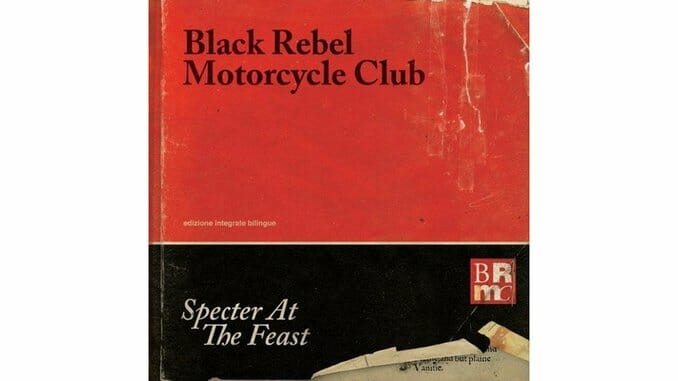
On their 2001 debut, B.R.M.C., Black Rebel Motorcycle Club offered a song titled “Whatever Happened to my Rock and Roll (Punk Song),” an energetic and attitude-driven paradigm for what the band thought rock and roll should sound like, or at least the attitude that rock bands should possess. Including this type of song on a debut implied that they would try to right the ship (and also demonstrated that they care more about their music ideology than about the grammar rules of “whatever” versus “what ever”).
For a few albums, including a creative peak in the vastly underrated Howl, BRMC encompassed all that they believed rock should be, a crucible of influences that spanned decades, that fans of The White Stripes and Zeppelin and Supergrass and JAMC could all relate to.
And then they started sounding a lot like Stone Temple Pilots. Sure, the band continually draws crowds, but after Howl, they also embarked down a road that saw their sonic evolution settle in a place that felt worn and easy, running the course of three disappointing albums whose best attribute was that the band seemed comfortable. What ever happened to our rock and roll, indeed.
Their seventh LP, Specter at the Feast, is anything but complacent. It comes nearly three years after their previous release, 2010‘s Beat the Devil’s Tattoo, and the band has endured the unthinkable tragedy of bassist/singer Robert Levon Been’s father, Michael Been of ‘80s band The Call, suddenly dying backstage while working as the group’s sound engineer as the trio performed at Pukkelpop Festival in Belgium. The time between this event and now has seen the group trying to cope with the loss of a crew and family member, and Specter at the Feast is written as a document to that time, an ambitious and personal project from a group that hasn’t been associated much with ambition since the release of Howl.
And, the effort shows, as the album sits easily with their early best, a worthy addition in the tradition of turning heartbreaking circumstances into cathartic art. Just this year we witnessed Local Natives digging in the same mine, but from Lou Reed to Arcade Fire, some of rock’s best music has been a reaction to personal losses.
Specter at the Feast, though, doesn’t drown in its depression. It is intent on showing the range of the human experience. Opening with the dirty, bass-driven “Firewalker,” the first emotions on the collection are not self-pity, but self-reflection, and the following “Let the Day Begin” covers The Call with a nod to ‘70s metal riffs and British rock revivalism, both songs paying as much homage to Been’s father as they do to the history of Black Rebel Motorcycle Club.
At its best, Specter at the Feast is more than just vintage BRMC, with some of the more UK-indebted noise pop reaching impressive heights. “Returning” lunges for vast emotional peaks and exceeds them with a sense of a sprawling shine, while “Lullaby” takes the guitar lick of “In My Life” and spins it in freeing, new directions, avoiding anything more than comparisons as a successful homage.
And if the album was written to demonstrate the ups and downs that come with life’s typical unpredictability, the closing combination of “Sell It” and “Lose Yourself,” together clocking in at around 15 minutes, encapsulate this mission. The end impression left by these closers is how out of control we all are, as they shift from noise and chaos to beauty and peace. More than a decade later, you have to wonder if BRMC ever realized that the only thing that ever happened to rock and roll was life, and that it’s all far more complicated than a single song or band can remedy. Reacting to what life has given them has made Black Rebel Motorcycle Club a better band on Specter at the Feast, and we can hope that this change will stick.